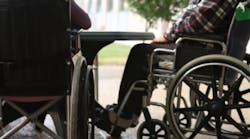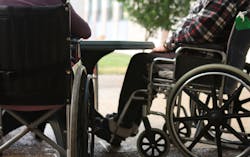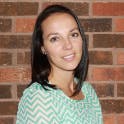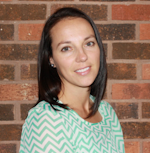‘I hope to end up in a nursing home’: Dental hygiene career alternatives
“I hope to end up in a nursing home.”
These were my exact words when my former employer asked what I would be doing after I resigned from my full-time RDH position.
In hindsight, I could have said more, and I could have said it more eloquently. I could have divulged a desire to provide care to an aging population that can no longer provide that care for themselves. I could have indicated that I wished to provide screenings and education for younger generations within their school environment. I could have simply stated that I wished to help bridge the gap between the dental office and those individuals that are limited due to mobility, finances, insurance or any other issue regarding access to care.
This idea has been roaming around my head since I completed my rotation in a local nursing home during hygiene school through the University of Wyoming in Sheridan, Wyoming. It troubled me that the majority of the patients we screened appeared to have neglected oral health. It was troubling to know that there were individuals there and elsewhere not being provided with the appropriate care or education.
READ MORE | Literally writing a book on dental hygiene care at nursing homes
As a hygiene student, I was unsure whether this neglect was due to poor cooperation by the residents or a possible gap in training and education of the staff. An aspiring dental hygiene classmate and I collaborated with a local facility that provided adult day care for individuals that were physically or mentally handicapped. We provided education for both the staff and the residents. These experiences have followed me since and have been the reasons that I find myself awake at night, unable to return to sleep.
After six years as an RDH and 11 years at the same dental office, I decided that it was time to pursue this desire. My transition will be from full-time RDH in a large multiprovider general practice to a part-time clinical hygienist where I will have more time to be able to pursue this alternate career path.
During my years of clinical experience, I decided that the issue isn’t solely access to care for individuals, but also access to education for caregivers. Several states have been forging ahead allowing dental hygienists to provide care in alternate settings with or without the collaboration of a willing dentist, as well as provide educational training for staff. South Dakota joined the growing list of states in 2010. There are currently very few hygienists in South Dakota that have entered an agreement with a dentist to allow them to provide those much-needed services. While the state board of dentistry has made changes to the collaborative agreement since it first was written, there is still a long way to go regarding access.
I would like to invite you to follow along with me as I navigate this journey in South Dakota. I hope that I will encourage and inspire others that may be wishing to do more with their education and experience. I hope to open doors for my profession and for those individuals that desperately need our care and knowledge by both following in the footsteps of other states that have established greater access to care and paving the way for other states to follow suit. Lastly, I do hope to end up in a nursing home, and I am confident that due to the efforts of every caring hygienist before and after me, I will be given the utmost in oral care.
Editor's note: This article first appeared in RDH eVillage. Click here to subscribe.









